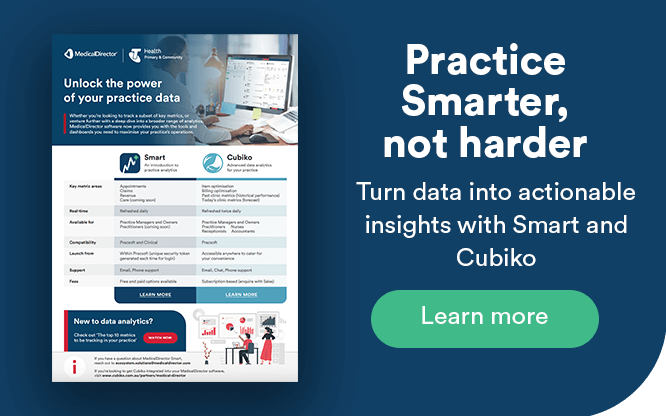Is your health team prepared for digital transformation?
Electronic health records, cloud software, mobile-centric health apps and the age of wellness wearables means the pressure is on medical practices to be digitally-empowered.
But what if there is reluctance by staff and health professionals to embrace change? In this article, we take a look some practice management tips to help prepare your team for the new age of digital transformation.
1. Identify as the transformational leader
The role of today’s practice manager, is as much about ensuring the smooth running of a practice as it is about transformational leadership. A recent report by the Australian Association of Practice Managers (AAPM), revealed how today’s practice manager is no longer viewed as ‘the administrator’, but heralded as the ‘transformational leader.’
According to the report, good people leadership in practice management is about applying an innovation and strategic vision, to positively influence the lives of individuals within the practice – and the community in which it operates. Ans as the digital age is quickly revolutionising healthcare, the responsibility is on the practice manager more than ever to be the beacon of change and drive digital transformation within a practice.
2. Listen to your team
First, take the time to listen to clinical staff and the support team. It’s important to understand any fears, challenges and concerns, including any issues around the day-to-day needs of administrative staff. Taking the time to put the practice’s wider team at ease of the benefits of health innovation, can create a more solid foundation upon which to build a positive culture of digital transformation.
3. Do a health check of the team’s tech skills
Are the doctors and support staff within your practice in using online appointment books, shortcut keys, voice recognition, or mobile patient engagement apps? Or are they still faxing and using paper-base diaries?
Before embarking on implementing any new software, technology, equipment or digital device, take the time to gauge everyone’s comfort levels – and the extend to which training is needed to get up and running smoothly.
4. Take training seriously
Regular training can ease a lot of anxiety within a medical practice around how to use a new or upgraded IT system, and many technology providers such as MedicalDirector offer a range of online and face-to-face training services. It also helps to implement technological systems that are intuitive and require little or no training.
This is what the team at Peninsula Cardiology Group enjoyed when implementing MedicalDirector’s specialist practice management system Bluechip integrated with Clinical.
According to Practice Manager Liz Morton, the software system is so simple to understand and navigate, that practice managers, new specialists and support staff can also get up and running with little or no training.
“When I started working here eight years ago, I actually taught myself how to use the software, that’s how easy it is to use,” Liz said. “Plus as more cardiologists join our growing team, it’s easy for us to just add on another software license. They also don’t have time for lots of training sessions and workshops, so they like the fact they can just come in and work it out fairly quickly.”










